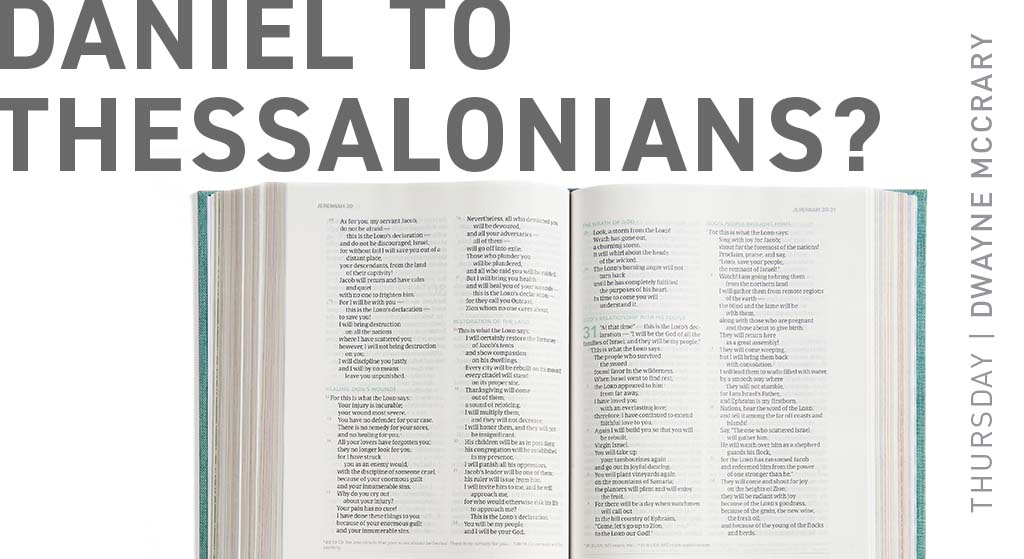In a couple of weeks, the student and adult groups using Explore the Bible will move from studying Daniel and on to Paul’s letters to the Thessalonians. While Daniel and Paul lived centuries apart from each other, they shared some common realities.
In Daniel 7-12, we find apocalyptic material that highlights God’s ongoing rule over nations and empires. Within these prophecies, we see references to a coming Messiah (7:13-14; 9:24-27). Daniel particularly predicted the tribulation of the last days and anticipated the new world that would follow. The Messiah will establish His kingdom and bring earthly powers to an end. Then, God will be glorified and believers will be rewarded. Daniel’s message was one of hope written during the Jewish exile. He reminds us that God’s people should not be in distress but should remain faithful no matter what our circumstances because God is still in control.
Paul also called on the Thessalonians to remain faithful. Several times, he reminded the Thessalonians of truths he had taught them regarding the same end times that had been foretold by Daniel (1 Thess. 1:10; 2:19-20; 3:5,13; 4:13-18; 5:1-11; 2 Thess. 1:6-12; 2:1-15). In 1 Thessalonians 4:13-18, Paul sought to comfort believers who had lost loved ones by reminding them of an upcoming reunion at Christ’s return. In 1 Thessalonians 5:1-11, he reminded them that the Lord will return in glory (for believers) and in judgment (for unbelievers). As a result, they should live a disciplined Christian life. And in 2 Thessalonians 2:1-15, the apostle corrected a false teaching that the Lord had already returned.
Daniel 9 begins with him writing about his realization that Jeremiah’s prophecy about the end of the Jewish exile was about to be fulfilled. Daniel then voiced a prayer of confession and repentance in anticipation of God’s promised restoration of His people. God expected His people to live as His people as they waited for that day of return. Paul echoed the same message, calling on the Thessalonians to live in obedience as they awaited the return of Christ (2 Thess. 3:6-15).
Christian hope depends on a future judgment when God brings justice and vindicates the faithful. Daniel nor Paul served to satisfy people’s idle curiosity. Instead, they provided assurance, comfort, and motivation to continue living the Christian life even when times were hard. Daniel and Paul remind us that our promised future should challenge us to live well in the present.
By studying Daniel and Paul’s letters to the Thessalonians in consecutive quarters, we see the unity of the biblical message. God promises a hopeful future to those who faithfully trust Him.
Order the Spring Explore the Bible resources for Adults, Students, and Kids.

Thank you.